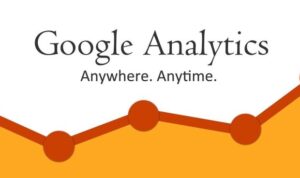SEO for Beginners – Kicking off with for Beginners, this opening paragraph is designed to captivate and engage the readers, setting the tone american high school hip style that unfolds with each word.
, short for Search Engine Optimization, is the key to getting your website noticed in the vast online world. In this guide, we’ll dive into the basics of and how it can help businesses thrive in the digital landscape.
Introduction to

, short for Search Engine Optimization, is the process of optimizing a website to improve its visibility on search engines like Google. It involves using specific strategies and techniques to increase organic (non-paid) traffic to a website.
is crucial for websites because it helps them rank higher in search engine results pages (SERPs), making it easier for potential customers to find them. By optimizing their websites, businesses can attract more traffic, increase brand visibility, and ultimately drive more sales.
Benefits of for Businesses
- Increased organic traffic: By optimizing their websites for search engines, businesses can attract more visitors without having to pay for ads.
- Improved brand visibility: Higher rankings in search results can help businesses build brand awareness and credibility among their target audience.
- Higher conversion rates: When a website is optimized for relevant s, it can attract more qualified leads who are more likely to convert into customers.
- Cost-effective marketing: Compared to paid advertising, offers a more sustainable and long-term solution for driving traffic to a website.
Basics of Search Engines: SEO For Beginners

When it comes to the world wide web, search engines play a crucial role in helping users find the information they need quickly and efficiently. Let’s dive into the basics of search engines to understand how they work and why they are so important.
Popular Search Engines
- Google: Undoubtedly the most popular search engine, known for its accurate and extensive search results.
- Bing: Microsoft’s search engine offering a unique approach to search with features like rewards for using the platform.
- Yahoo: Once a dominant player, Yahoo still serves as a search engine with a variety of news and information.
How Search Engines Work
Search engines operate by using complex algorithms to crawl and index web pages, organizing them based on relevance to user queries. When a user enters a search term, the search engine retrieves the most relevant results from its index and presents them in the search results page.
Significance of Search Engine Algorithms
Search engine algorithms are the secret sauce behind how search engines determine the ranking of web pages in search results. These algorithms consider factors like s, backlinks, user experience, and more to ensure that the most relevant and high-quality content is displayed to users.
On-Page
On-page refers to the optimization strategies implemented on a website itself to improve its search engine rankings and visibility. This includes various elements that can be controlled directly on the site.
Components of On-Page , SEO for Beginners
- Meta Tags: These include the title tag, meta description, and meta s. They provide information about the content of a webpage to search engines and users.
- Content: High-quality, relevant, and engaging content is crucial for on-page . It should be original, well-written, and optimized for target s.
- Heading Tags: Proper use of heading tags (H1, H2, etc.) helps search engines understand the structure and hierarchy of the content on a webpage.
- URL Structure: Creating -friendly URLs that are descriptive and contain target s can improve the visibility of a webpage.
- Image Optimization: Optimizing images with descriptive filenames, alt text, and captions can enhance the overall of a webpage.
Optimizing Meta Tags
Meta tags play a crucial role in on-page as they provide essential information about a webpage to search engines. Here are some tips for optimizing meta tags:
- Title Tag: Keep it concise, relevant, and include target s. Limit the title tag length to around 50-60 characters.
- Meta Description: Write a compelling and unique meta description that summarizes the content of the webpage. Include a call-to-action to encourage clicks.
- Meta s: While meta s are no longer a major ranking factor, you can still include relevant s to provide additional context to search engines.
Importance of High-Quality Content
High-quality content is the cornerstone of on-page . Search engines prioritize websites that offer valuable and relevant content to users. Here’s why high-quality content is essential for on-page :
- Improves User Experience: Engaging content keeps visitors on your site longer, reducing bounce rates and increasing dwell time.
- Increases Credibility: Well-researched and informative content positions your website as an authority in your industry, earning trust from users and search engines.
- Boosts Organic Traffic: High-quality content optimized for relevant s can attract organic traffic from search engines, leading to higher rankings and visibility.
Off-Page
Off-page refers to all the activities that are done outside of your own website to improve its search engine rankings. This includes building backlinks, social media marketing, and other external factors that can impact your site’s visibility in search results.
Role of Backlinks in Off-Page
Backlinks play a crucial role in off-page as they act as a vote of confidence from other websites. Search engines like Google use backlinks as a way to determine the credibility and authority of a website. The more high-quality backlinks you have from reputable websites, the higher your site will rank in search results.
- Focus on Quality over Quantity: It’s better to have a few high-quality backlinks from authoritative websites than a bunch of low-quality links.
- Diversify Your Backlink Profile: Aim to get backlinks from a variety of sources, including blogs, news sites, and industry-specific websites.
- Guest Blogging: Writing guest posts for other websites is a great way to earn backlinks and increase your site’s visibility.
- Broken Link Building: Find broken links on other websites and offer your content as a replacement, earning a valuable backlink in the process.






